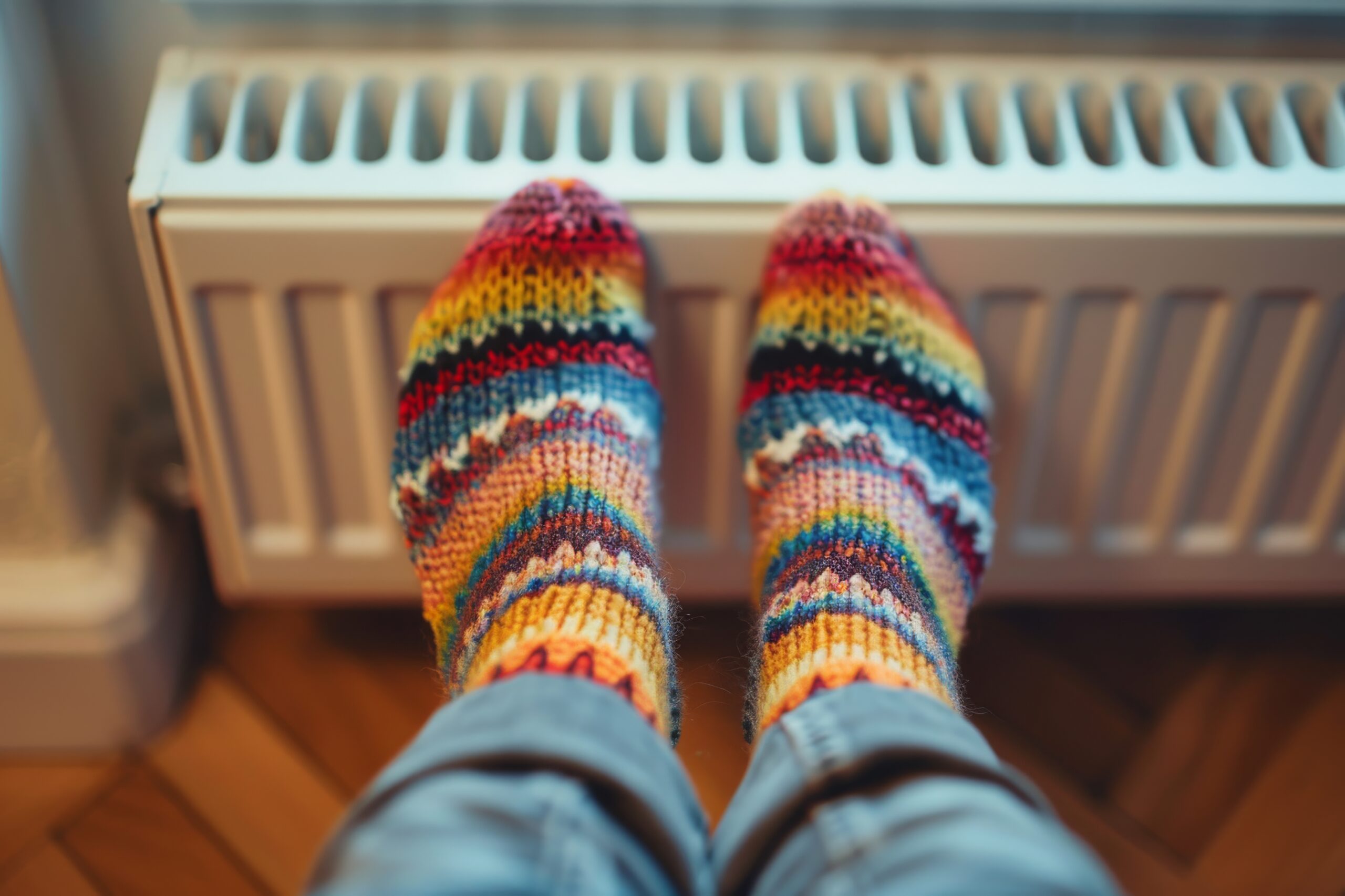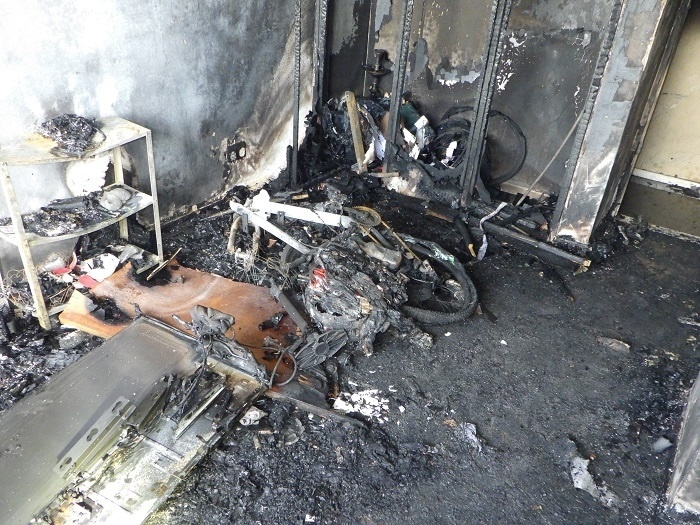Staying warm at in winter isn’t all about zonking up the central heating; some forms of heating don’t cost a thing.
We all want to stay healthy over the chilly winter months and keep our homes free from damp and condensation, but as energy prices rise it pays to be canny.
There are four main ways to keep warm: heat yourself, heat your home, get used to colder temperatures, or do a combination of all three. Here are a few tips from those who know how to keep warm and well, with and without central heating.
Love thy layers
Ancient people did it, mountaineers do it, even astronauts do it (if you count the fact that spacesuits are made up of several different layers). Layering to keep the warm air in and the cold air out, is as old as time. Thermals under a warm shirt, and a jumper on top should do the trick. Add a pair of thick socks (or two pairs of thin socks), especially if you have uncarpeted floors.
Tip: It’s a myth that most heat escapes from the head. However, your body temperature will drop faster if your head gets cold, so if you feel chilly, keep your head covered.
Mind control
Have you ever been in a room with someone who insists it’s cold while you’re sweltering? Different people have different perceptions of the temperature, and to some degree we can change those perceptions.
If there’s no-one in your household who is elderly, very young, with health problems or with disabilities that make them vulnerable, you can try to acclimatise to the cold as the seasons change or as you move from room to room. Let your mind register the lower temperature and give your body a chance to get used to it.
Tip: When you get out of your warm bed, it’s bound to feel colder. Exercise, dance, run, walk, or clean the house to keep your body busy and generate heat while your mind adjusts to the lower temperature! Keep moving at regular intervals throughout the day. Your joints will thank you for it too.
Feed the cold
To keep warm on a cold day, nutritionists recommend the kind of things you’d expect – soups, root vegetable stews, hot drinks, and warm spices such as cayenne, turmeric, and ginger. Foods rich in iron that keep the oxygen flowing through the body are high on the list too e.g. spinach and other leafy green vegetables, beans, seeds, lentils, and red meat. Foods rich in magnesium, such as bananas, are recommended too.
Tip: Alcohol makes us feel warmer because it sends blood to the surface of the skin, but it doesn’t raise our body temperature. In fact, it lowers our core temperature.
Shut that door!
Close doors to keep the heat in your main living spaces and use draught excluders where needed. If it’s sunny outside, open the curtains to get nature’s free heating; close them as soon as the sun goes down.
Ideally, all homes would be well-insulated and free from damp so that they retain heat. Sadly, that’s not the case. Cromwood ensures that all its homes have an energy performance certificate (EPC) rating of C and above and is implementing a programme to get them to B.
Tip: Scout around charity shops for cheap curtains or ask friends and family if they’ll donate their old ones.
Heat up!
It’s that time of year when many of us hunker down with blankets (electric blankets cost about 4p an hour) and hot water bottles, determined to keep utility bills to a minimum, but sometimes it gets so cold that only the central heating will do.
The World Health Organisation recommends an indoor temperature of 18C for those of us in the global north, while the NHS recommends switching on the heating once outdoor temperatures dip below 15C. It’s better to ask for help than to risk your health.
If you have a thermostat, it’s cheaper to keep it on at a steady temperature than to turn it on and off.
Tip: Wipe condensation from windows before turning on the central heating and avoid drying clothes on radiators.
Money, money, money
Alongside government benefits such as the Cold Weather Payment, Winter Fuel Payment and Warm Home Discount, additional support may be available from your utility company. Councils offer help through the Household Support Fund. Find out what’s available through your local authority.
There’s lots of advice available online too. For example, British Gas Energy Trust provides advice to anyone – not just its own customers – on paying debts and saving energy. You can also access free information from your energy provider or companies such as the Energy Saving Trust.
Tip: The Winter Fuel Payment is now limited to those receiving Pension Credit. However, lots of people entitled to Pension Credit don’t claim it. Visit www.gov.uk/cost-of-living, speak to Citizens’ Advice or your support worker to ensure that you’re getting the help you’re entitled to.
Get in touch – we’re here to help
Cromwood regularly carries out gas and electricity inspections and checks boilers and radiators. Minor issues with heating or hot water should be sorted within 24-hours. If parts have to be ordered, it could take a few days.
In-house repair officers generally carry portable heaters in their vans and so if your central heating goes kaput, just get in touch. Our out of hours team is available on weekends and during holiday periods.
Tip: Check your radiators for cold spots before the winter chill sets in. If you can’t bleed your radiators and have missed your inspections, get in touch to arrange an alternative date.



